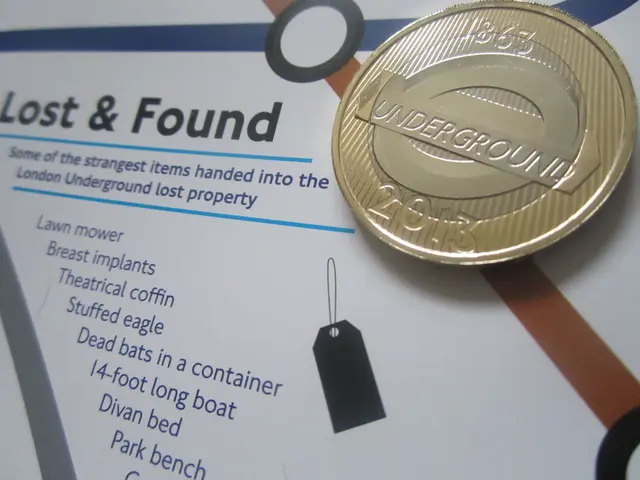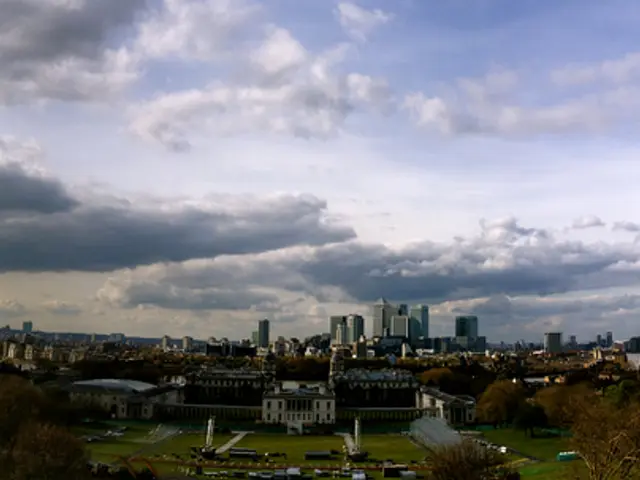Record-breaking low natural gas consumption in the Netherlands seen in 2022, spanning over half a century
In a remarkable turn of events, the Netherlands witnessed a significant decrease in natural gas consumption last year, with the total usage dropping by 22% compared to 2021. This decline, which brought consumption levels to their lowest point in 50 years at 31 billion cubic meters, was influenced by a combination of factors, primarily coordinated demand reduction measures, shifts in gas production policy, and energy-saving efforts across various sectors.
Key contributors to this decrease include:
- Reduction of gas production in Groningen field: The Dutch government drastically reduced output from Groningen, the largest gas field in the EU, starting late in 2022. This move reduced domestic natural gas supply and consumption.
- EU-wide voluntary gas demand reduction: In response to global energy disruptions, EU countries agreed to voluntarily cut natural gas demand by 15% from August 2022 to March 2023 compared to the previous five-year average. This agreement included demand reductions in the Netherlands, leading to lower consumption.
- Behavioral changes and energy saving in households and industry: Wider consumer behavior adjustments, such as reduced gas heating usage and energy efficiency improvements in housing, contributed to less gas consumption. The Dutch government and EU policies emphasize home renovations and installation of hybrid heat pumps to reduce heating gas demand.
- Switching to alternative energy sources and delayed nuclear reactor closures: Some increases in coal use in Europe replaced gas less than expected, but postponement of nuclear reactor shutdowns in nearby countries saved gas consumption, indirectly helping reduce natural gas use in the Netherlands.
- Sector-specific impacts: Industrial demand for gas also fell in 2022 due to energy transition efforts, efficiency gains, and regulatory pressure under the EU's REPowerEU plan, which promotes reducing fossil fuel dependency.
Households in the Netherlands decreased their natural gas consumption by 25% in 2022, using only 7.16 billion cubic meters. This reduction is mainly attributed to high gas prices in the country, caused by the Russian invasion of Ukraine, and last year's mild temperatures. Greenhouse horticulture companies, representing nearly 7% of the country's gas consumption, also consumed 30% less natural gas in 2022.
Despite these dramatic changes, it is increasingly likely that Europe will get through the winter without energy rationing or power cuts. Gas prices in the Netherlands are now trading at a level close to that seen in September 2021, before the war in Ukraine. This decline in natural gas consumption, coupled with increased imports and the adoption of alternative energy sources, suggests a promising shift towards a more sustainable energy future for the Netherlands.
- The decrease in natural gas consumption in the Netherlands was facilitated by the Dutch government's reduction of gas production in the Groningen field, which signifies a significant step towards renewable energy in environmental science.
- The European Union's voluntary gas demand reduction agreement has been crucial in influencing the Dutch industry to shift away from oil-and-gas reliance, as part of a larger global effort to combat climate-change.
- The decline in natural gas consumption in households and industry in the Netherlands can be attributed to the introduction of hybrid heat pumps, furthering the growth of the renewable-energy sector.
- Financial implications, such as high gas prices due to the Russian invasion of Ukraine and the subsequent drop in consumption, have played a role in the Netherlands' transition towards a cleaner and more sustainable energy future.





